The eight Democrats running for City Council variously touted their financial acumen, their love for Lancaster, their common sense and their connection to the community at a forum Thursday evening at Bethel AME Church.
Of the eight, three are incumbents and have been endorsed by the city Democratic Committee: Council President Amanda Bakay and Councilmen Ahmed Ahmed and Jaime Arroyo. A fourth, John Hursh, has not been endorsed formally, but is backed by committee leaders and Mayor Danene Sorace.
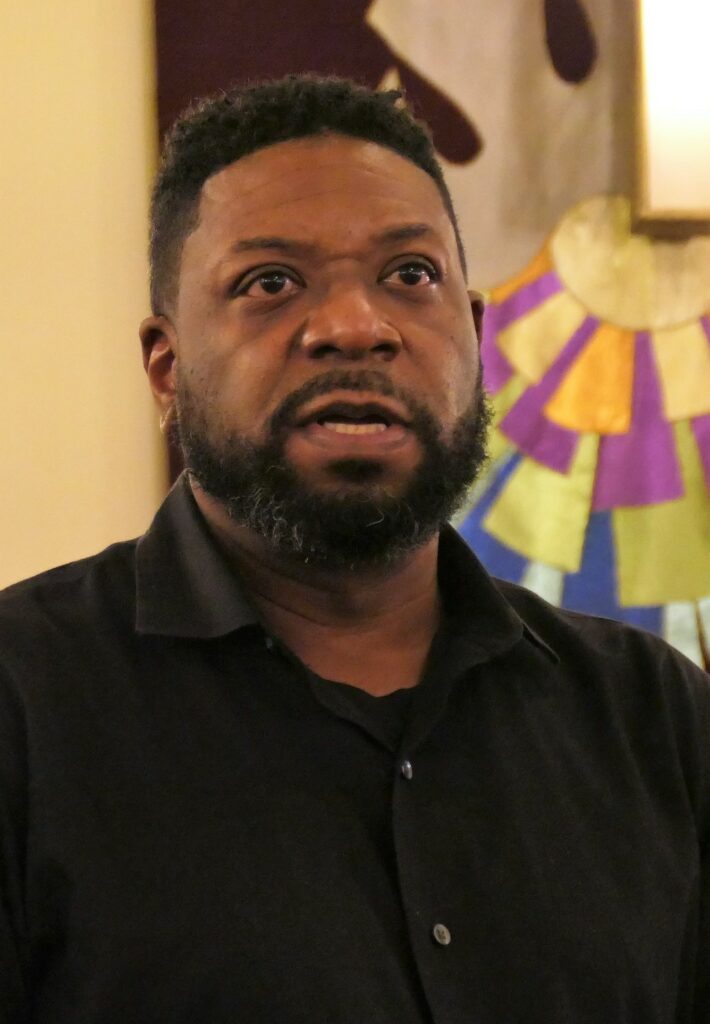
The other four, Ivan Acosta-Velez, Tene Darby, Andre Gilbert and Dayna London are running as populists. They say the voices of ordinary city residents — especially in the city’s Southeast — are being ignored.
Ahmed and London are running for a two-year seat, to complete the term of former council President Ismail Smith-Wade-El, now a state representative.
The other six candidates are vying for three full four-year terms.
No Republicans are seeking nominations in the Tuesday, May 16, primary, so the four Democratic candidates who prevail are almost certain to coast to victory in November.
‘Not represented’
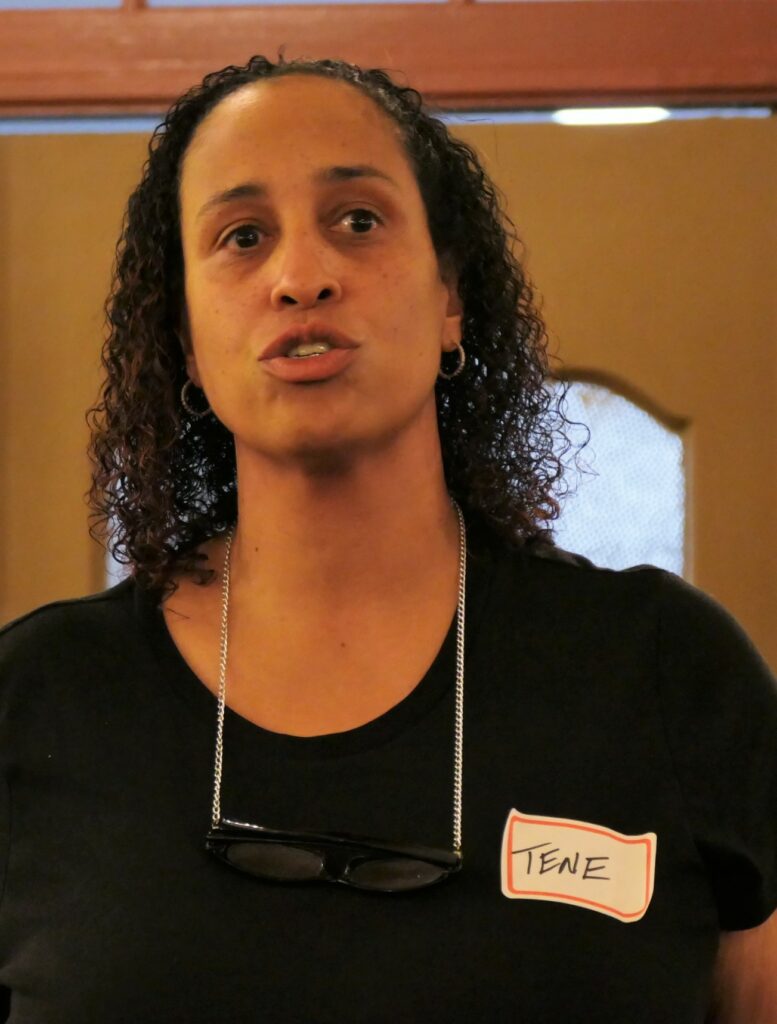
“I’m just like you,” Gilbert told the modest audience at the historic Black church on East Strawberry Street, which he attends. “… I’m not like the other Black faces you see on Council. I am a real African American.”
“The Southeast is not represented on Council,” Darby said. “We need to be represented.”
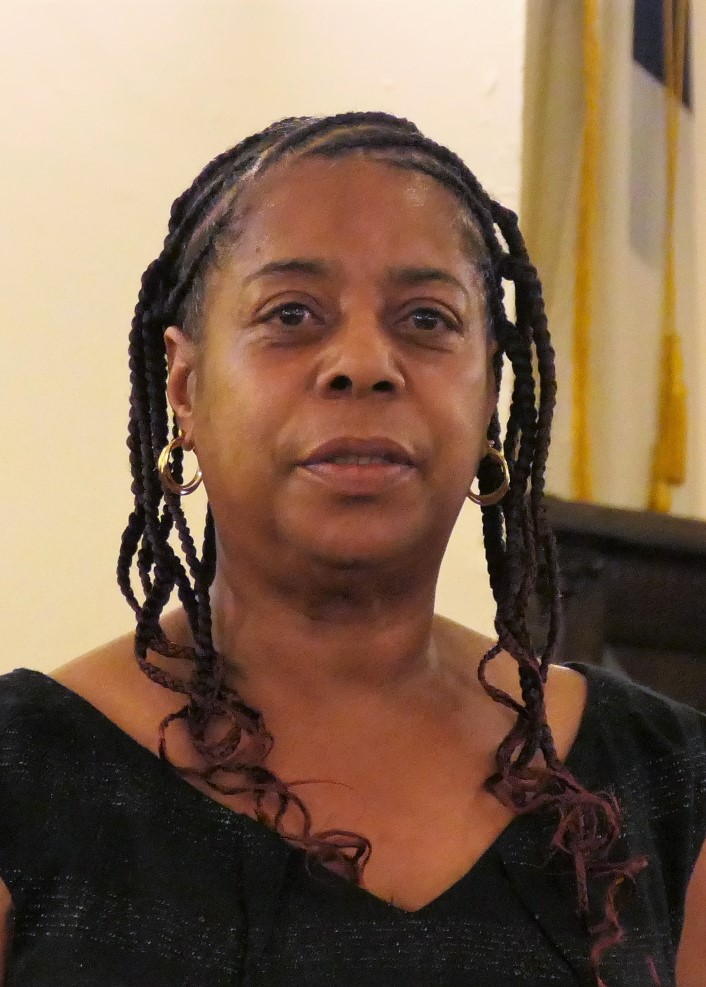
London is Lancaster born and raised and said, “I’m not going anywhere.” The city used to be a neighborly place where “we looked out for our own,” she said, and it can be that way again. “I’ll be your pit bull,” she promised.
Acosta-Velez, a native of Puerto Rico, punctuated his comments with bursts of Spanish.
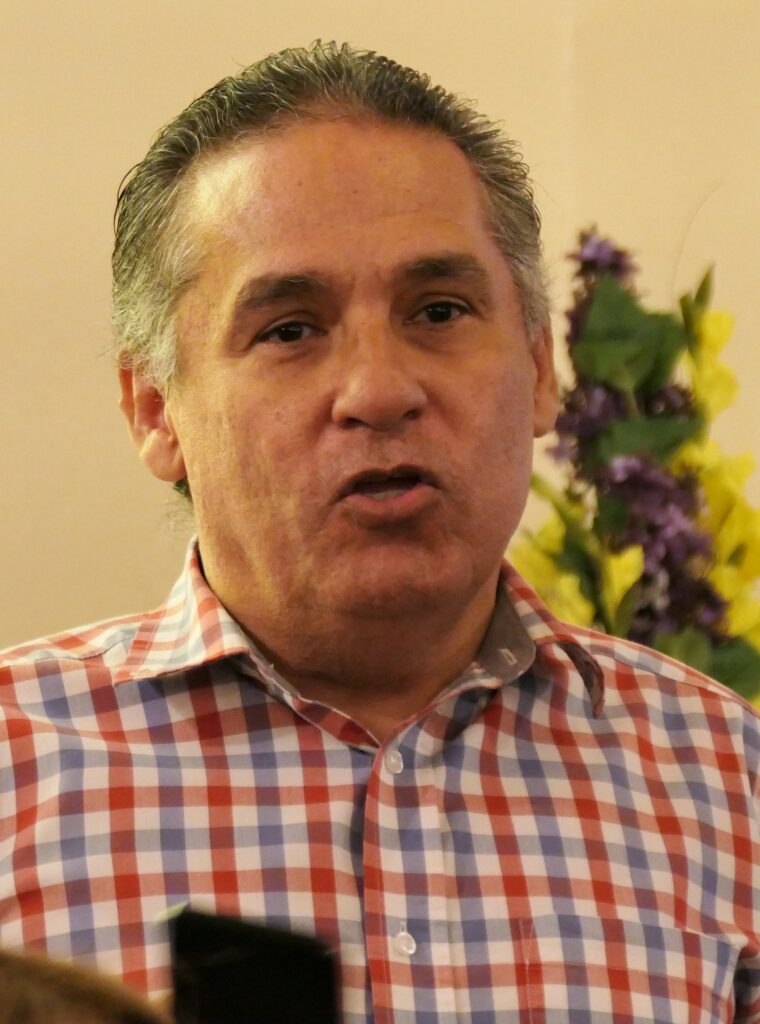
Too often, he said, council members ignore the community after they’re elected. He would be different, he said, pledging to serve only one term and to stand firm against any attempt to raise city taxes or utility rates.
He, Darby and Gilbert all stressed their neighborhood activism and work on behalf of the community.
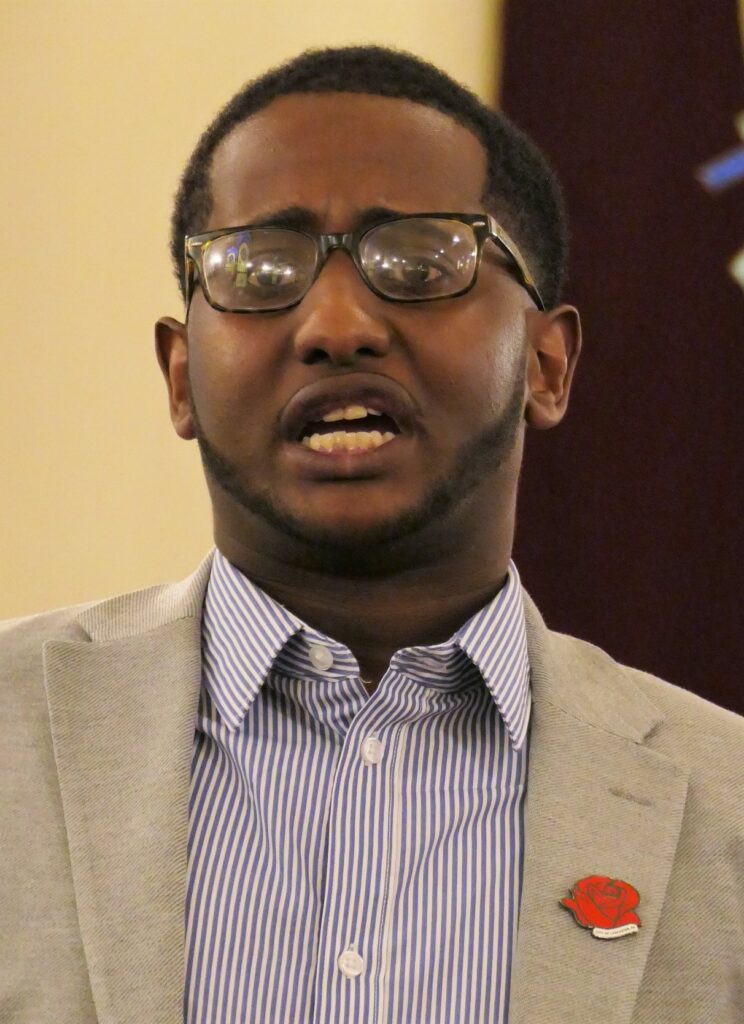
Ahmed, the first Muslim and first refugee on City Council, said his life’s work is to make Lancaster a welcoming city for all, especially refugees and immigrants like himself. He cited his concern over the city’s financial struggles.
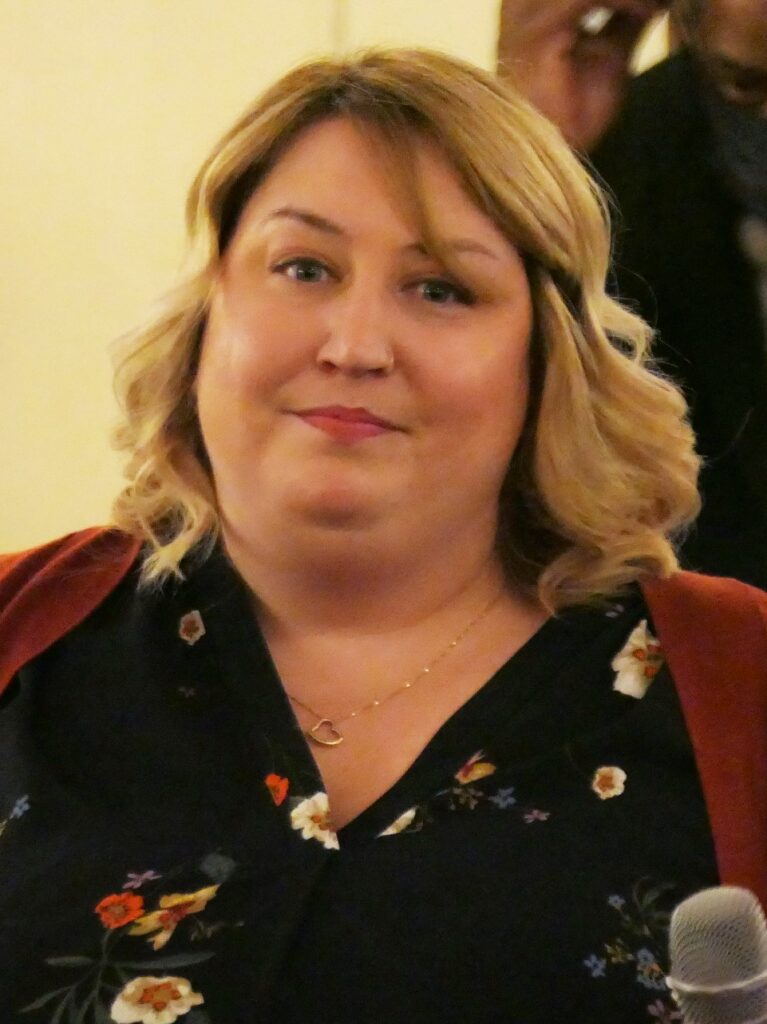
Bakay said there’s “no easy solution” to the city’s structural deficit: The need to keep taxes down is in tension with the need and demand for more city services: Streets need to be paved, residents need help keeping the city’s aging housing stock livable.
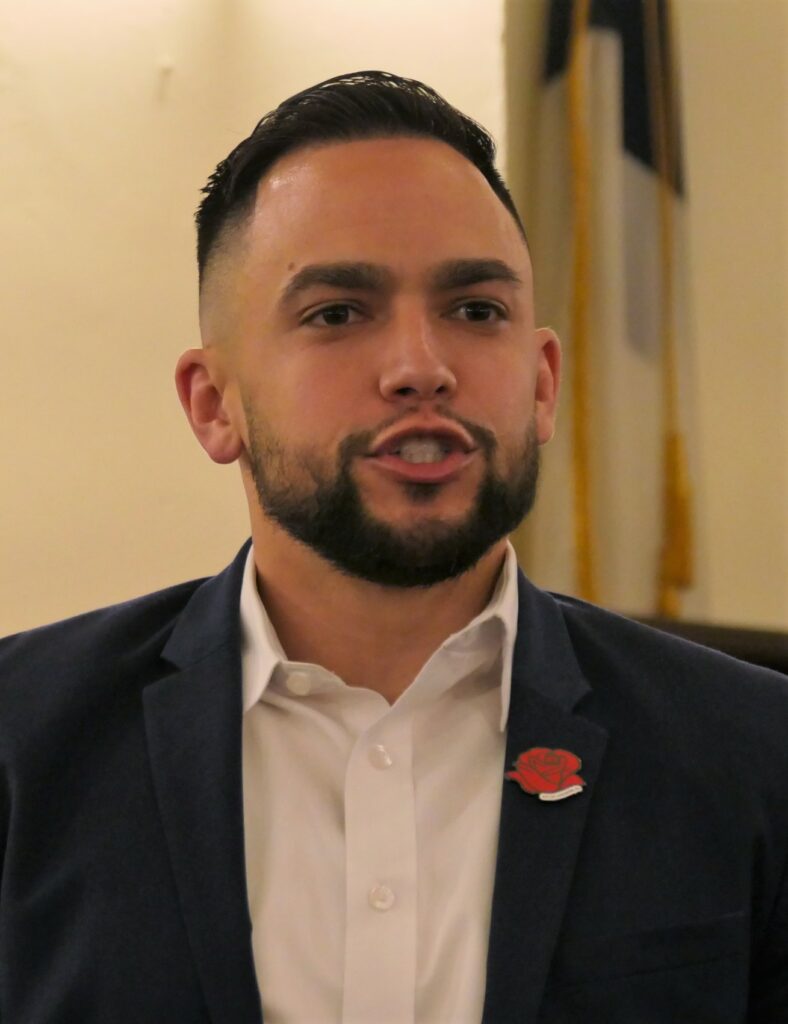
Arroyo similarly cautioned against a reflexive focus on cost-cutting. Past generations’ unwillingness to spend has saddled Lancaster with huge backlog of deferred maintenance, he said: Going forward, the city needs to catch up on those repairs then stay abreast of them, so that costs stay incremental.
Hursh called for investing tax dollars in ways that produce returns, such as installing solar panels to power city infrastructure and encouraging infill development to grow the tax base.
All four cited their financial bona fides: Bakay is a former retail banker, Arroyo leads Assets PA, Ahmed deals with budgets as a hospitality professional and Hursh is a certified public accountant and former auditor.
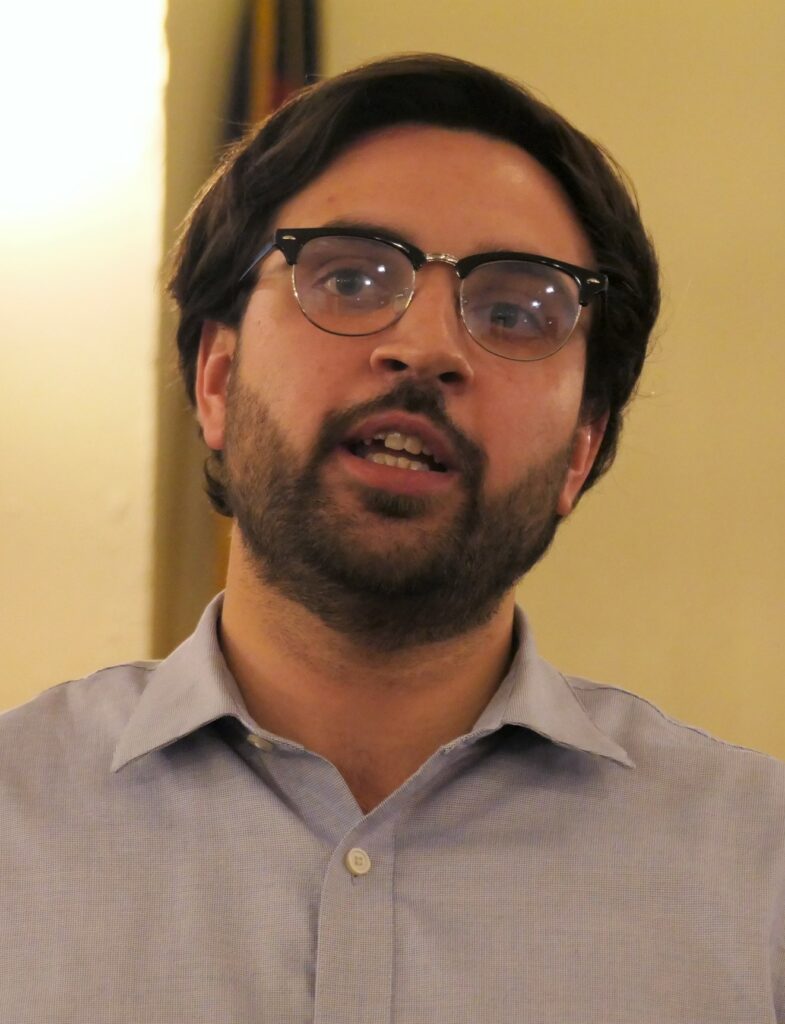
Last year, Hursh began putting chairs out at bus stops that didn’t have seating. That’s the kind of incremental bottom-up problem-solving approach he would bring to City Council, he said.
A referendum on the May 16 ballots will ask city voters to authorize a home rule study commission. Bakay, Arroyo, Ahmed and Hursh all expressed support for home rule, saying it could help shift some of the tax burden away from property taxes.
Hursh said a higher real estate transfer tax might help to discourage speculative house flipping, which is driving up housing costs and displacing longtime residents.
Acosta-Velez, Darby, Gilbert and London all said they would bring to City Hall the financial expertise of everyday people: making ends meet on a tight budget. In the Southeast, people are used to making $1 out of 15 cents, Darby said, suggesting that the city would get better advice from ordinary citizens than from the expensive consultants it brings in.
Acosta-Velez was the candidate who emphasized cuts the most, saying the city has been too liberal in handing out large raises to senior staff. Gilbert said he would seek expert opinion on budget and tax matters, then take the issue to the community at large to get public input on any decision. “We want full transparency,” he said.
On gentrification
On gentrification and development, Bakay said the city can’t absorb all the county’s affordable housing needs: Other municipalities have to do their part. Ahmed advocated for rent control, which would require legislation at the state level; Hursh said the city could encourage small contractors and residents to help expand the housing supply by streamlining zoning and permitting and being more flexible.
Arroyo agreed that municipalities countywide must build more and allow more density, but he said City Council has been doing its part. He lauded its investment of $10 million in American Rescue Plan Act funds in affordable housing, the largest such allocation in city history. ($7.4 million was allocated last year and $1 was used in 2021 to buy 838 Marietta Ave.; the remaining $1.6 million is up for approval next week.)
Acosta-Velez, London, Gilbert and Darby all said the city should work to stop gentrification, though without delving into specifics. They complained that the city cuts deals with developers and invests in downtown, but that the Southeast is left behind. (City Hall disputes this, citing things such as the renovation of parks and playgrounds, the volume of street repaving and the lead abatement program.)
‘Let’s see who’s behind you’
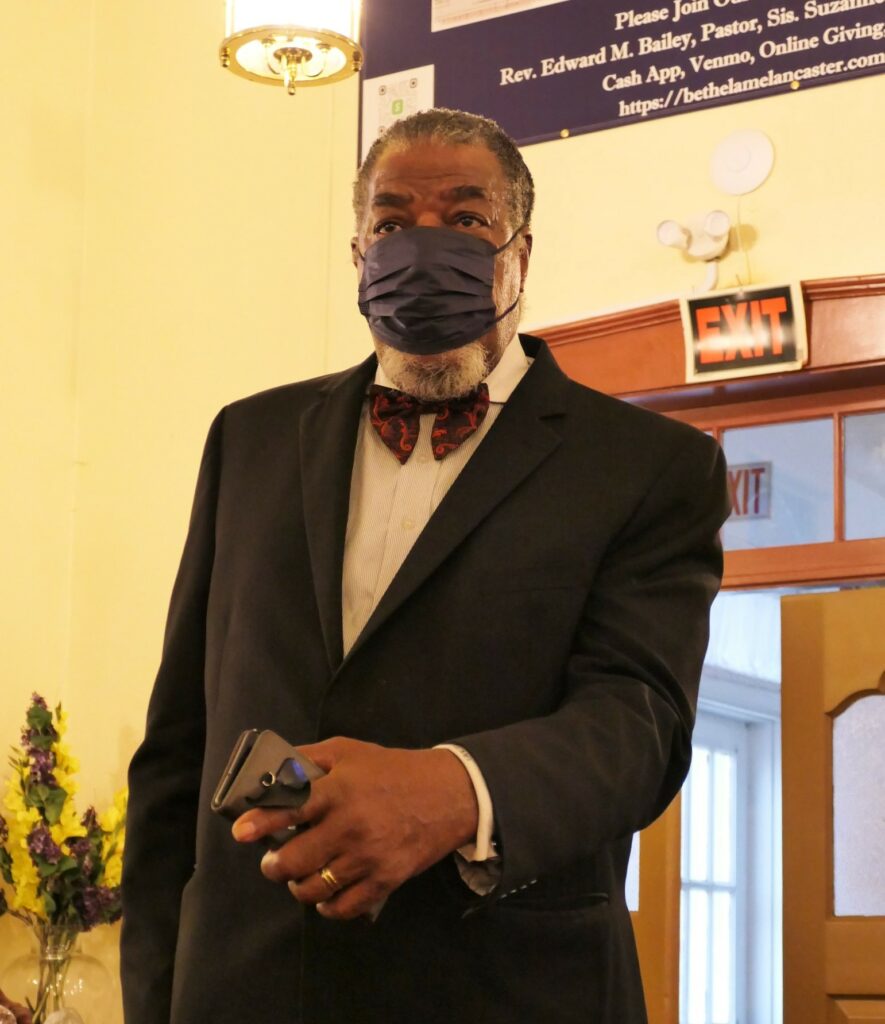
Midway through Thursday’s City Hall candidates’ forum at Bethel AME Church, its pastor, the Rev. Edward Bailey, admonished them, saying essentially that they had no business being there.
“I’m kind of disappointed,” he said. “Folk are running for office and brought nobody with them. … You come here as candidates, you got to bring people.”
The Southeast needs candidates who “walk the walk,” he said, adding that candidates should have a base in the community: Otherwise, city policies aren’t going to change.
“Let me see who’s behind you,” he said. “… If you don’t bring nobody, nobody should vote for you.”
ARPA
Arroyo defended the city’s ARPA grant process in response to a question from Darlene Byrd, the leader of South Ann Concerned Neighbors. Byrd noted Arroyo and Bakay saw applicants’ full paperwork as members of the ARPA review committee, but other City Council members did not, and asked if that should be changed in future.
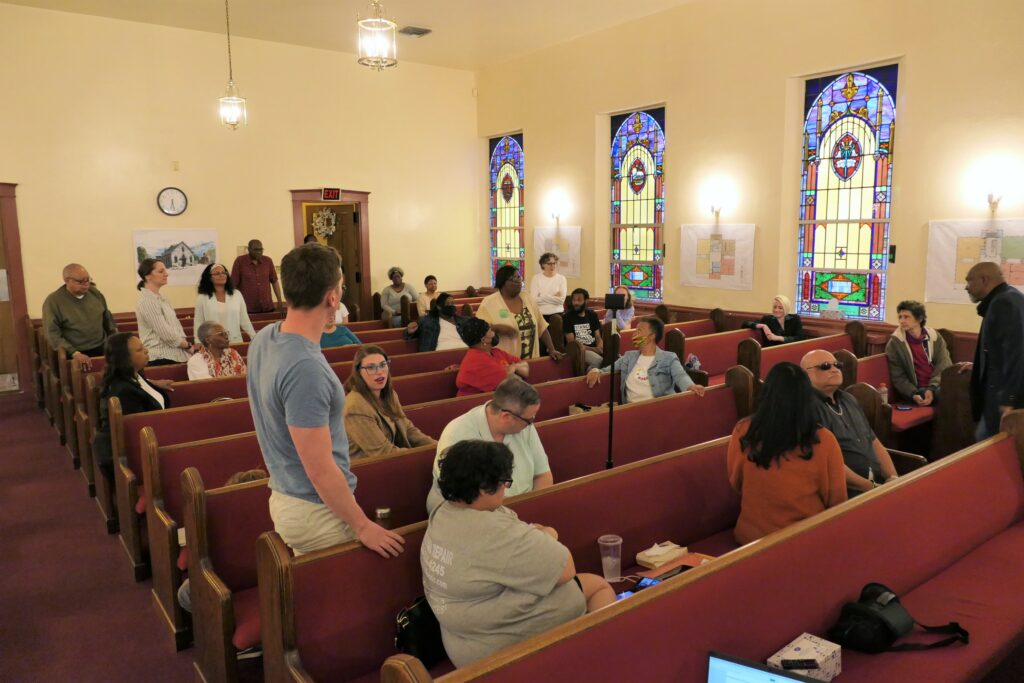
Arroyo said the process was developed with community input and he’s proud of the result. Ahmed said council members should have full access to the applications; Bakay said Council worked with the ARPA process that was set up; but that going forward, provided City Council is legally allowed to see applications, which isn’t always the case, she’s in favor of making them available.
Council appointed Ahmed to his seat last year by a 4-1 vote from a field of 10 candidates, among whom were Darby, Gilbert and Hursh.
Thursday’s forum was co-sponsored by Lancaster’s chapters of National Action Network and the Delta Sigma Theta sorority and by South Ann Concerned Neighbors.
The same organizations are sponsoring a forum for School District of Lancaster school board candidates. It, too, will take place at Bethel AME Church, 512 E. Strawberry St., beginning at 6 p.m. Thursday, April 27.
(Editor’s Note: This article was updated on Monday, April 24, to add Bethel AME Church’s video of the forum.)






